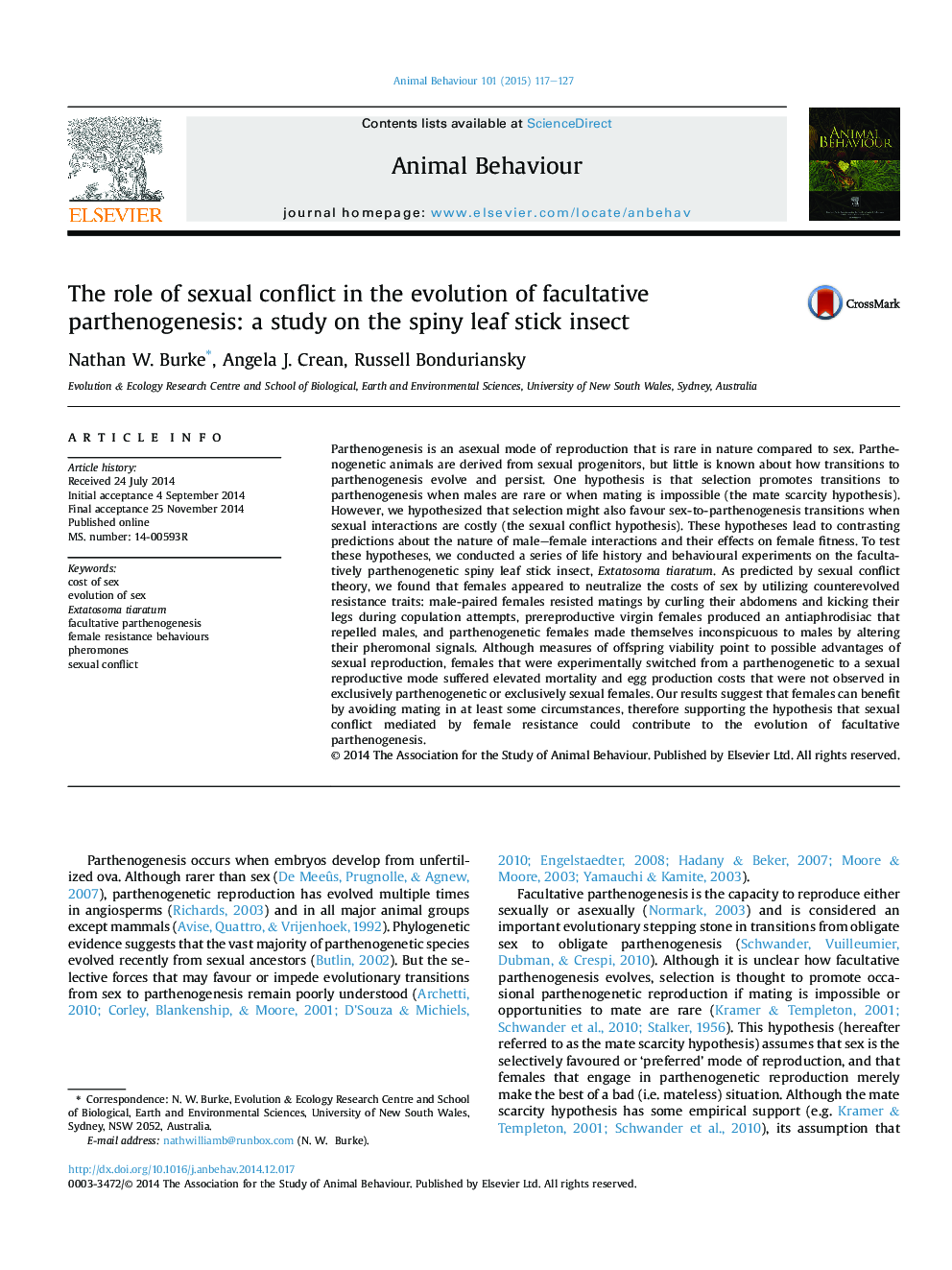| کد مقاله | کد نشریه | سال انتشار | مقاله انگلیسی | نسخه تمام متن |
|---|---|---|---|---|
| 8490125 | 1552227 | 2015 | 11 صفحه PDF | دانلود رایگان |
عنوان انگلیسی مقاله ISI
The role of sexual conflict in the evolution of facultative parthenogenesis: a study on the spiny leaf stick insect
ترجمه فارسی عنوان
نقش تعارض جنسی در تکامل بخشی فزاینده فاکتور: مطالعه بر روی حشره چوب برگ زرد
دانلود مقاله + سفارش ترجمه
دانلود مقاله ISI انگلیسی
رایگان برای ایرانیان
موضوعات مرتبط
علوم زیستی و بیوفناوری
علوم کشاورزی و بیولوژیک
علوم دامی و جانورشناسی
چکیده انگلیسی
Parthenogenesis is an asexual mode of reproduction that is rare in nature compared to sex. Parthenogenetic animals are derived from sexual progenitors, but little is known about how transitions to parthenogenesis evolve and persist. One hypothesis is that selection promotes transitions to parthenogenesis when males are rare or when mating is impossible (the mate scarcity hypothesis). However, we hypothesized that selection might also favour sex-to-parthenogenesis transitions when sexual interactions are costly (the sexual conflict hypothesis). These hypotheses lead to contrasting predictions about the nature of male-female interactions and their effects on female fitness. To test these hypotheses, we conducted a series of life history and behavioural experiments on the facultatively parthenogenetic spiny leaf stick insect, Extatosoma tiaratum. As predicted by sexual conflict theory, we found that females appeared to neutralize the costs of sex by utilizing counterevolved resistance traits: male-paired females resisted matings by curling their abdomens and kicking their legs during copulation attempts, prereproductive virgin females produced an antiaphrodisiac that repelled males, and parthenogenetic females made themselves inconspicuous to males by altering their pheromonal signals. Although measures of offspring viability point to possible advantages of sexual reproduction, females that were experimentally switched from a parthenogenetic to a sexual reproductive mode suffered elevated mortality and egg production costs that were not observed in exclusively parthenogenetic or exclusively sexual females. Our results suggest that females can benefit by avoiding mating in at least some circumstances, therefore supporting the hypothesis that sexual conflict mediated by female resistance could contribute to the evolution of facultative parthenogenesis.
ناشر
Database: Elsevier - ScienceDirect (ساینس دایرکت)
Journal: Animal Behaviour - Volume 101, March 2015, Pages 117-127
Journal: Animal Behaviour - Volume 101, March 2015, Pages 117-127
نویسندگان
Nathan W. Burke, Angela J. Crean, Russell Bonduriansky,
